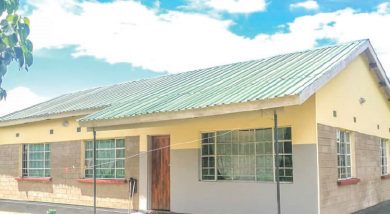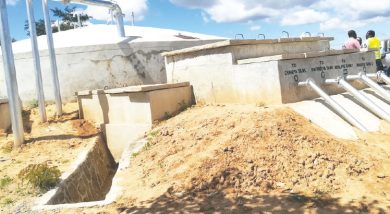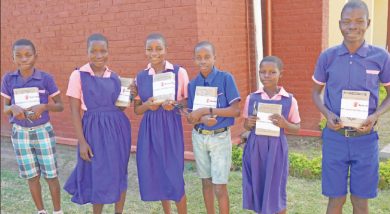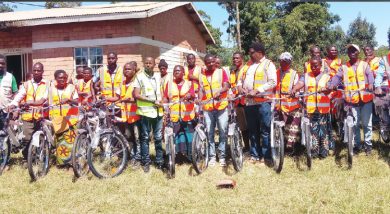Govt rounds up 1 700 refugees
Ministry of Homeland Security says it has rounded up 1 784 refugees and asylum seekers since the start of the relocation exercise on May 14 2023.
Addressing the press in Lilongwe yesterday, Minister of Homeland Security Ken Zikhale Ng’oma said the exercise will be ongoing throughout this financial year.
He said: “Some of the refugees were soldiers back in their countries, as such, there is need to ensure that they stay in designated places. There are over 44 army generals in the country at the moment.
“If we don’t handle this matter well, we are bound to let something grow that will eventually haunt your children. We will not rest until we get all the refugees and asylum seekers back to Dzaleka.”
The minister said the plan is to take all refugees to Chitipa District where government will set up a new camp.
During the briefing, Ng’oma also said Treasury is yet to release K750 millionwhich was budgeted for the exercise.
The minister said the lack of funds has forced the ministry to implement the operation on credit.
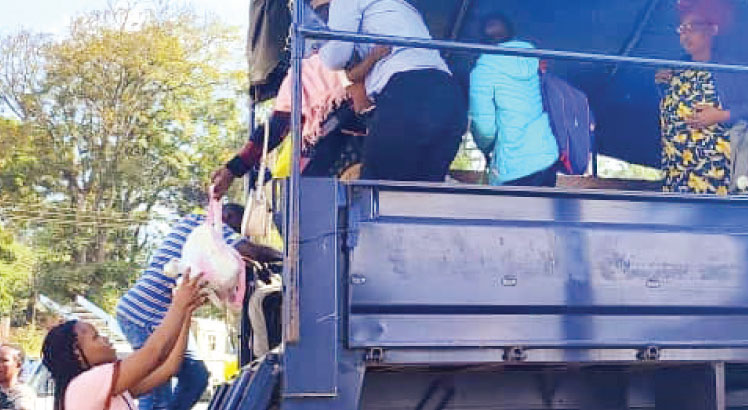
He said currently, the ministry owes Malawi Prison Services K8 million for food and toiletries for the refugees and asylum seekers during the period they were kept in prisons.
Said Ng’oma: “We have also used K16 million on fuel which we got from the ministry’s allocation. Otherwise, we haven’t paid anyone in this exercise. Even security officers who are working on the exercise have not been paid their allowances as we wait for Treasury to release the funds.”
When contacted for his comment on the funding status, Minister of Finance and Economic Affairs Sosten Gwengwe said he was yet to see such a request, adding there are procedures to be followed by government ministries, departments and agencies (MDAs) that need funding.
He said: “When an MDA wants funding which is not budgeted for, there is a procedure the MDA needs to follow. Once that is done, funding follows. This is according to the Public Finance Management Act of 2022. We stand ready as Treasury. I haven’t seen the request yet.”
According to Ng’oma, there are over 53 000 illegal immigrants in the country whom government is failing to identify.
In an interview, Ministry of Homeland Security spokesperson Patrick Botha said they have, so far, been to over eight districts in search of refugees that need to return to Dzaleka.
He said: “We target to reach every corner of Malawi. So far, we have been to Lilongwe, Mangochi, Thyolo, Rumphi, Nkhata-Bay, NKhotaKota, Kasungu and Blantyre where we rounded up about 80 refugees in the city. Officers are still on the ground as this exercise is ongoing.”
The police have since issued a strong warning to refugees who were successfully relocated to Dzaleka Refugee Camp and are returning to cities and towns.
Malawi started the exercise to relocate to Dzaleka Refugee Camp in Dowa all refugees operating businesses in residential areas in Lilongwe on May 17 2023 where it rounded up 408 in one day.
It is estimated that there are about 8 000 refugees and asylum seekers outside Dzaleka Camp.
Meanwhile, international rights body, Human Rights Watch, has accused the Malawi Government of not regarding the basic human rights of refugees and asylum seekers by detaining and forcibly relocating them to Dzaleka, urging authorities to reverse the action and respect everyone’s rights to freedom of movement, education, and a basic standard of living.
Human Rights Watch senior Africa researcher Idriss Ali Nassah said reports that children have been among those caught up in the sweeps and forcibly taken to Maula Central Prison, a maximum-security prison in Lilongwe, are of grave concern.
But in a statement issued on Saturday evening, Ministry of Homeland Security Principal Secretary Oliver Kumbambe justified the operation, saying there have been concerns that some migrants were involved in illegal activities, including crossborder crimes, transnational crimes, human trafficking and smuggling, as well as drug trafficking.
Dzaleka Camp is home to refugees and asylum-seekers from Burundi, the Democratic Republic of the Congo, Ethiopia, Rwanda and Somalia.
The camp has been receiving a monthly average of 300 new arrivals of which 62 percent are from the DRC, 19 percent from Burundi, 7 percent from Rwanda and 2 percent from other nationalities.
The camp has a capacity of about 10 000 refugees but the refugee population has risen to over 56 000.


